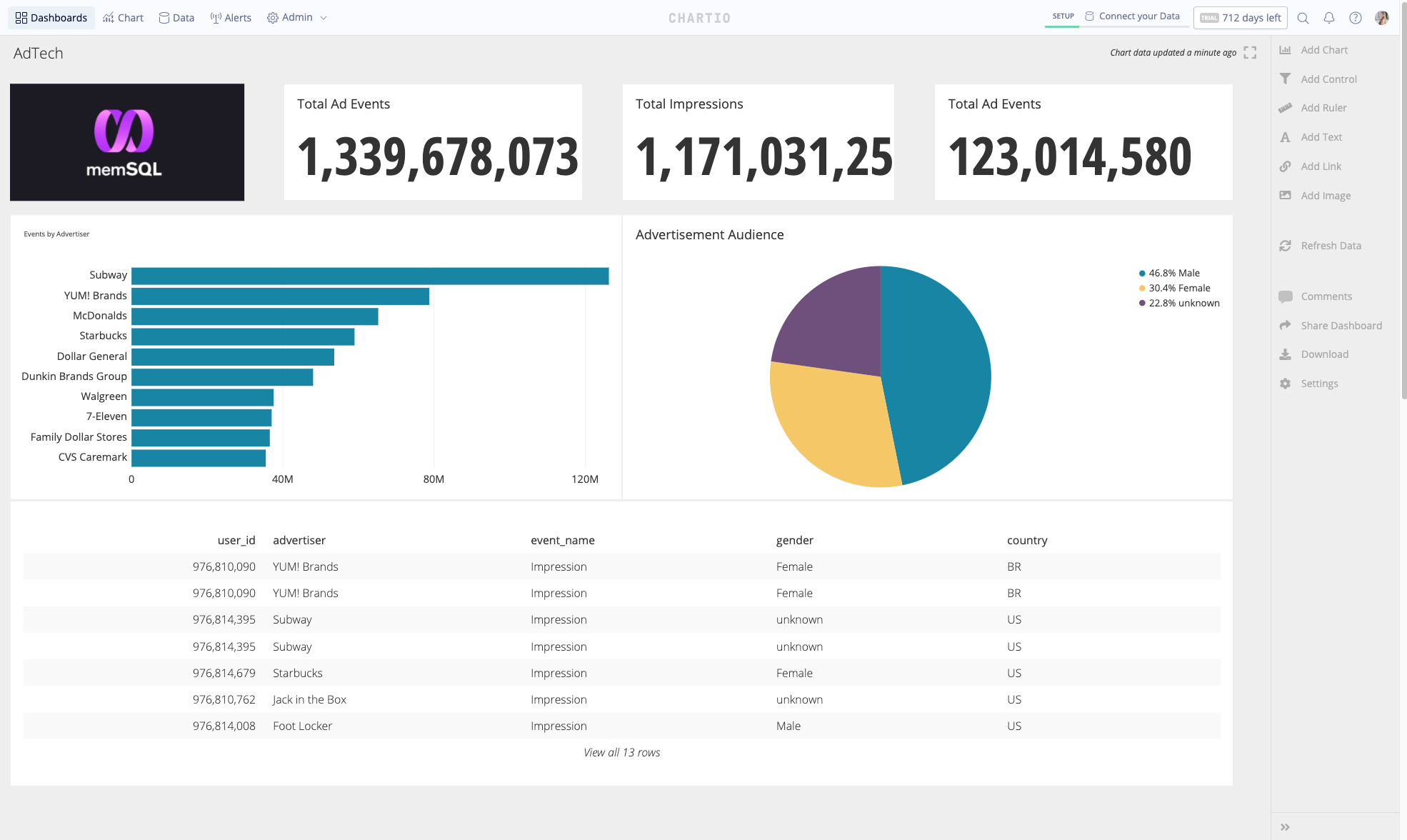Chartio + Tray: How Apollo broadens accessibility and visibility of key metrics
Posted by on July 16, 2018 Case Study, Business Intelligence,
Apollo, the GraphQL company, offers a family of open-source technologies that provide mission-critical infrastructure for leading startups and enterprises such as The New York Times, Ticketmaster, and AirBnB.
Apollo’s platform includes three important offerings: the Apollo Client, which simplifies data retrieval by binding GraphQL data to your user interface; the Apollo Engine, which enables users to run GraphQL on top of any back-end; and the Apollo Server, which translates any back-end to a GraphQL schema. Simply put, Apollo’s family of technologies enables developers to use the highly efficient GraphQL query language to instantly retrieve data, rapidly verify and troubleshoot API implementations, improve overall performance, and develop applications faster.
However, ensuring uptime for the dozens of services, databases, and applications that make up Apollo’s toolchain requires access to real-time diagnostics and data. To solve this challenge, ApolloGraphQL uses the powerful combination of Chartio and Tray.io, a flexible general automation platform. Armed with these solutions, ApolloGraphQL takes full ownership of its internal data, intelligently surfacing it as beautifully visualized dashboards that are delivered automatically to every team member that needs it.
ApolloGraphQL takes full ownership of its internal data, intelligently surfacing it as beautifully visualized dashboards that are delivered automatically to every team member that needs it.
Apollo uses Chartio to track important operational metrics on a daily basis, producing detailed, easy-to-understand data visualizations for important technical metrics fed through its analytics platform, Segment, and its database platform, Amazon Redshift. These reports include analytics dumps on NPM (Node Package Manager) package stats, covering crucial operational data, including usage, performance, and uptime.
Chartio’s visual interface to SQL enables everyone on the Apollo team to explore their data and to create their own dashboards. These dashboards help the team to immediately visualize platform performance and user activity to give valuable diagnostic insights, including quickly identifying any technical issues that need to be addressed, as well as increased pockets of activity that indicate potential upsell opportunities.
Chartio’s visual interface to SQL enables everyone on the Apollo team to explore their data and to create their own dashboards.
To pipe this important data through its stack, Apollo uses Tray.io’s flexible general automation platform to integrate its various stack components. Tray.io ties together Segment to Redshift to warehouse its important operational data and make it available for use with Chartio’s actionable dashboards. A Tray.io automated workflow then shares these dashboards every day via an internal Slack channel, ensuring that the team is always up-to-date on its most important metrics.
The company also uses Tray.io for additional internal processes, such as the onboarding process for new customers, using the sales intelligence platform Outreach to send automated emails to new users that guide them through the new user experience.
By using Chartio’s interactive charts to visualize its data and Tray.io’s general automation platform to coordinate data transfer through its stack, Apollo no longer needs to worry about having easy-to-understand data visualizations delivered to its team in a timely manner. With Chartio and Tray, the company stays on top of its data and stays ahead of any important technical challenges that may arise for its customers.
About Apollo
Apollo is the GraphQL company. It offers a family of open source tools and commercial solutions that enable developers to build apps faster and easier by getting the most out of GraphQL. The company’s technologies are used in production by top startups and enterprises worldwide including Airbnb, Github, The New York Times, Opentable, CNBC, and Ticketmaster. Based in San Francisco with employees around the globe, Apollo is backed by top investors including Andreessen Horowitz, Matrix Partners, Trinity Ventures, and Y Combinator.


